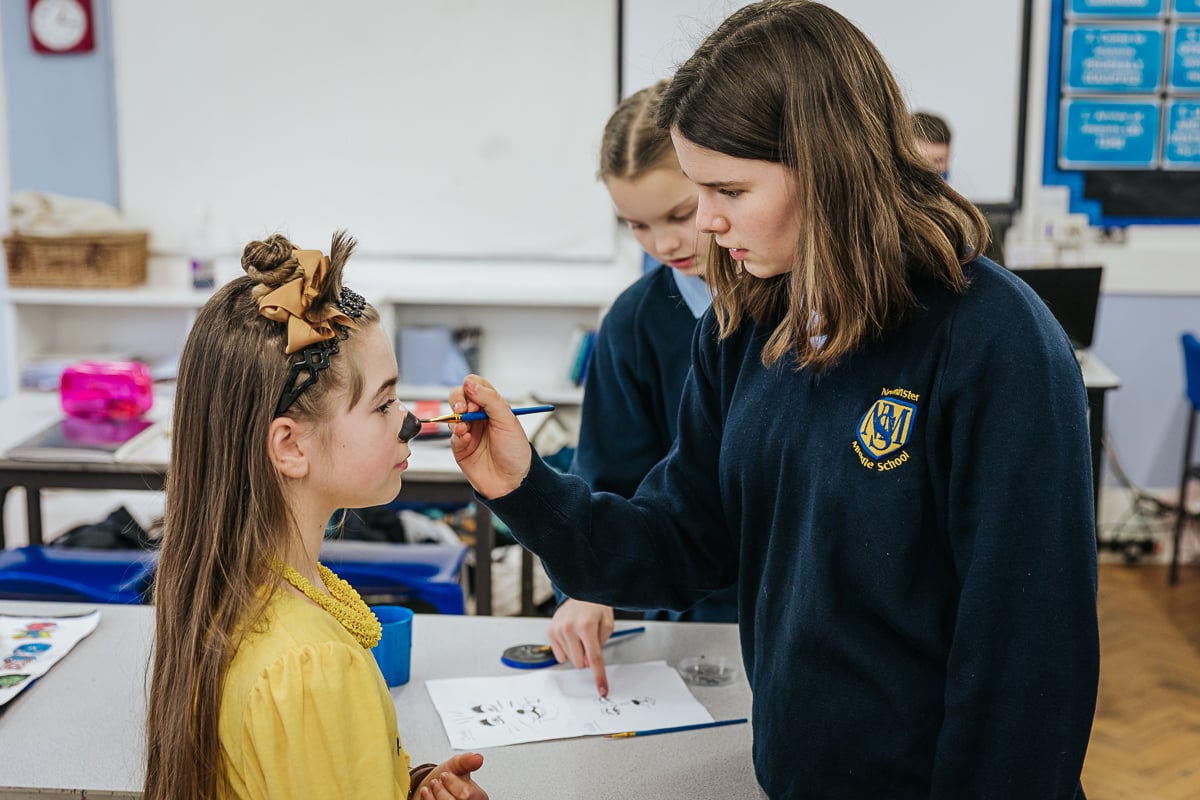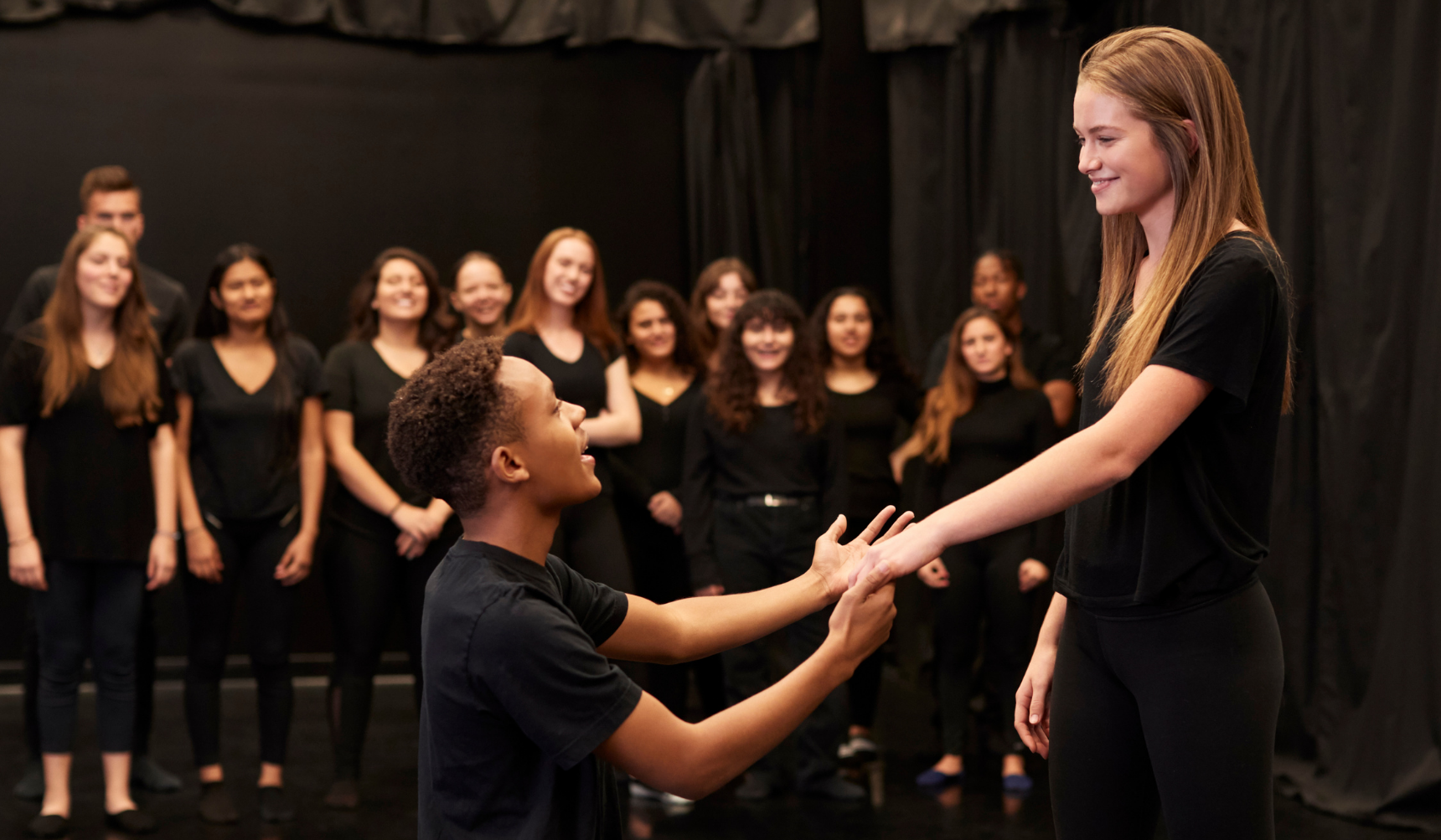/Blog/Language-Classroom.jpg)
GESE: A perfect fit for any General English class

BY: Academic Support Team
20 September 2021
You have A2 level students and they want to take an A2 level speaking exam. How can you help them to prepare for it?
Perhaps familiarise them with the format, look at some example exams, do as many practise run-throughs as you can, teach them the grammar that might come up, practise as many of the topics as possible and give them the related lexis, understand what the examiner is looking for, practise pronunciation, give them useful phrases, and so on. The good news is that when it comes to the Trinity GESE exams, much of the preparation has already been done just by following an A2 syllabus in a communicative classroom environment.
A good teacher will cover a range of suitable grammar, vocabulary and pronunciation in their lessons. They will be giving their students communicative activities, encouraging them to speak (even though they will inevitably be making mistakes) helping them to get their meaning across and coping when miscommunications happen… and having fun to boot. If the students can do that in their classroom, they already have the tools they need to do it in the exam room.
However, in saying that no special preparation classes are required, that is not to say the teacher is not required. Heavens! It is also not to say that no preparation of any kind is needed at all. If you are familiar with GESE, you will be aware that there are twelve grades, divided into four stages: Initial, Elementary, Intermediate and Advanced. From the Elementary Stage onwards, candidates bring in a topic of their choice, and at the Advanced Stage, they give a presentation. These things do of course need some preparation, but of the type which is meaningful to the candidate and which develops and draws on 21st-century skills. Preparing for an English exam can help you to hone your skills and give you an opportunity to show what you can really do. It shouldn’t be an endurance trial or an uphill struggle to figure out the magic formula for how to pass.
Mind you, from personal experience, it can be hard to convince the students of this. Many of them, like me, grew up taking exams for which we focused on memorising information and learning all kinds of things that we’d never need to use again. Now, when told that those things are not necessary for GESE, it can feel a little unnerving and destabilising.
Certainly, it is important to know what is being tested - both the syllabus and the marking criteria are available on the Trinity website. It can also be helpful to watch videos of the exams – the Trinity youtube channel has plenty of these. However, the key thing with the GESE exams is that the language and skills being tested are the very same language and skills being learnt in the classroom and being used in our everyday lives. When candidates stray too far from this – memorising whole anecdotes, trying to force grammar into unnatural positions, giving advice when none is required – they can get into difficulty. Seeing the exam as something separate from real life can actually take candidates off course and make communication much harder.
So, some preparation may be needed, but only in so far as it supports the progression of the exam and the teaching and learning process. We shall look at this in more detail in relation to the components of the exams.
GESE by online delivery
In response to the situation created by COVID-19, Trinity has developed a digital alternative method of offering GESE and ISE speaking and listening exams. Candidates are now able to take their one-to-one assessments online with an experienced Trinity examiner via video conference in registered exam centres. See the video above to learn more.
The Conversation Phase
All four Stages have this Phase. At the Initial Stage, it is the only Phase. Grade 2 is CEFR A1. What are students able to talk about at A1 level? Something along the lines of: family, friends, home, objects, possessions, colours, numbers, clothing, and free time. Indeed, these are the conversation topics covered in GESE Grades 1 & 2. If a student can confidently chat about these things with their classmates and their teacher, they have a good chance at doing well in the exam.
How about B1 level? Coursebooks often cover subjects like festivals, health, money, travel, music, special occasions, etc. Again, these are the topics candidates are expected to be able to talk about in GESE 5 & 6. And there are no surprises. The GESE syllabus lists six subject areas for each Grade, from which the examiner will choose two at random to discuss with each candidate. The only exception is Grade 12 (Proficiency), where the examiner may choose any topic at all.
What if a student is currently A2 level but needs to obtain a B1 certificate? This is where things can go a bit awry. If the candidate is not genuinely B1 level, they can end up focusing too much on specific grammar points or colloquial phrases out of context, or be tempted to memorise long chunks of language. This can lead to recitation or isolated samples of the language of the Grade. Since the GESE exams are all about genuine communication and spontaneous conversation, such coping strategies tend to actually lead to a breakdown in communication and an inability to initiate or respond appropriately.
This is introduced in the Elementary Stage. The candidate prepares a topic of their choice which they will then discuss with the examiner. Rather than having to learn subjects that may not be of interest to them, or be caught off guard by a subject they may know nothing about, they can instead pick something which is meaningful and relevant to them. The only preparation other than that is to check that their selected topic and discussion points will give them the opportunity to adequately demonstrate the language of the Grade.
This part of the exam is in the Intermediate and Advanced Stages and provides an excellent opportunity for the candidate to show that they are able to initiate conversation, respond appropriately and draw on a range of linguistic competencies. The examiner reads out a prompt and the candidate then asks questions to get more information and makes comments. Depending on the Grade, the skills used may include: making suggestions, highlighting advantages and disadvantages, speculating, paraphrasing, deducing, justifying and implying. These are all things we naturally do in our own language when discussing the types of scenarios found in the prompts. Again, no special exam skills are needed for this task. In fact, seeing it as other than a common everyday situation can lead candidates to confusion. If they get too caught up on a notion of ‘exam skills’, they can forget what they would normally do in real life. Relate it back to real life and they’ll do much better.
The ‘Listening Task’ is in the Advanced Stage, which covers C1 and C2. The examiner reads out three short passages, two of which the candidate provides a suitable ending for, and one which they answer a short question on. The Phase is testing the candidates’ ability to understand such things as attitude, mood, implied meaning, abstract and perhaps unfamiliar topics of a specialist nature and native speaker speed delivery. The Task is something the candidates tend to find difficult. That said, it is a difficult thing to do, and only accomplishable by candidates with a high level of English. No special preparation is required. Rather, a sophisticated level of English is.
Again, this features at the Advanced level. The candidates deliver a five-minute formal presentation on a subject of their choice, and this is followed by a Topic Discussion, led by the candidate, based on the points which have been raised. Giving a presentation is a common requirement in many workplaces and on academic courses. In order to do it well, the person may need to start by doing some research, then select which information to include, consider how to organise it, take into account the audience, and practice delivering it in the timeframe allotted. These are key skills, not particular to the Trinity exam. In fact, for some candidates, the GESE Advanced exams are their first taste of delivering a presentation, giving them a reason to develop skills that are well worth having.
Essentially, the best way to prepare students is to just follow good teaching practice and develop their communicative competencies and confidence. Students who feel comfortable speaking in English, who are used to negotiating meaning and dealing with miscommunications, and who don’t just ‘know’ the language, but can actually ‘use’ it, will have a good chance of success in a Trinity GESE exam. If they start clinging too tightly to particular language items or searching for special exam techniques, they will be losing sight what they actually need to do. The more they can bring their real-world experiences and skills into the GESE exam room, the better they are likely to do… and have fun to boot.
Related posts
BY: Sue Clarke: Subject Expert - Drama




Comments & Replies